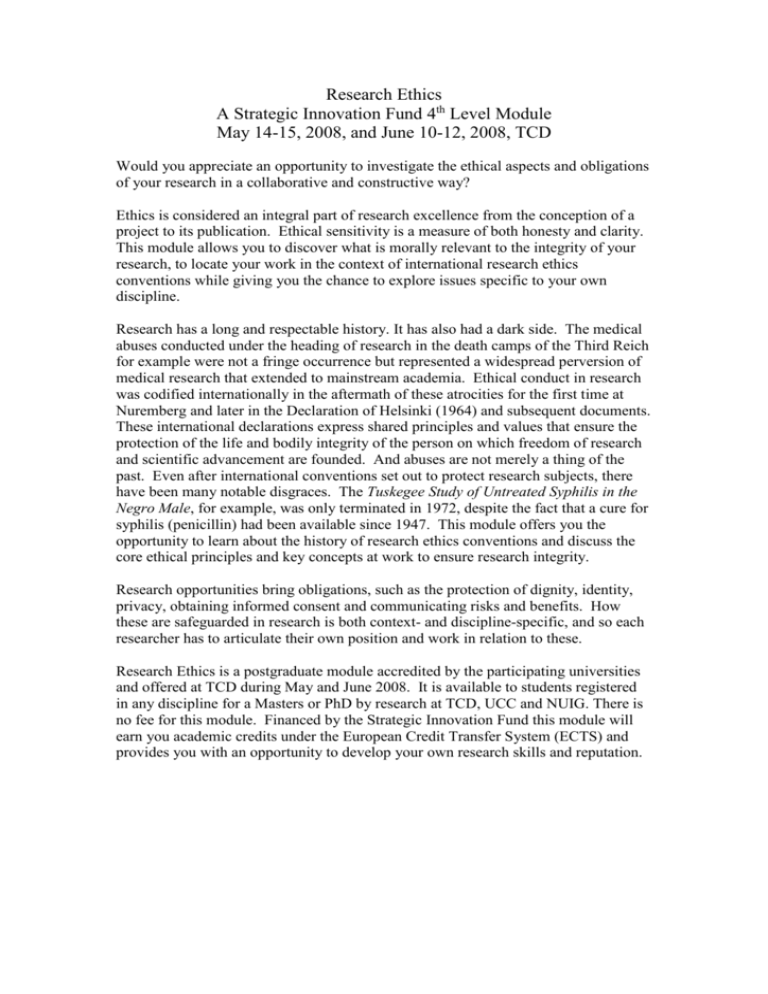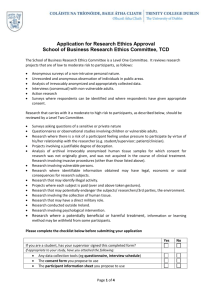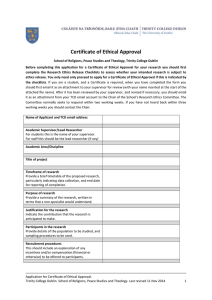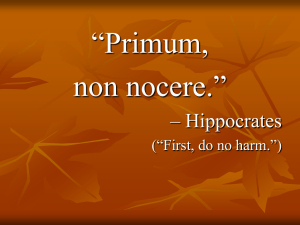Graduate Research Ethics: Strategic Innnosomething Fund
advertisement

Research Ethics A Strategic Innovation Fund 4th Level Module May 14-15, 2008, and June 10-12, 2008, TCD Would you appreciate an opportunity to investigate the ethical aspects and obligations of your research in a collaborative and constructive way? Ethics is considered an integral part of research excellence from the conception of a project to its publication. Ethical sensitivity is a measure of both honesty and clarity. This module allows you to discover what is morally relevant to the integrity of your research, to locate your work in the context of international research ethics conventions while giving you the chance to explore issues specific to your own discipline. Research has a long and respectable history. It has also had a dark side. The medical abuses conducted under the heading of research in the death camps of the Third Reich for example were not a fringe occurrence but represented a widespread perversion of medical research that extended to mainstream academia. Ethical conduct in research was codified internationally in the aftermath of these atrocities for the first time at Nuremberg and later in the Declaration of Helsinki (1964) and subsequent documents. These international declarations express shared principles and values that ensure the protection of the life and bodily integrity of the person on which freedom of research and scientific advancement are founded. And abuses are not merely a thing of the past. Even after international conventions set out to protect research subjects, there have been many notable disgraces. The Tuskegee Study of Untreated Syphilis in the Negro Male, for example, was only terminated in 1972, despite the fact that a cure for syphilis (penicillin) had been available since 1947. This module offers you the opportunity to learn about the history of research ethics conventions and discuss the core ethical principles and key concepts at work to ensure research integrity. Research opportunities bring obligations, such as the protection of dignity, identity, privacy, obtaining informed consent and communicating risks and benefits. How these are safeguarded in research is both context- and discipline-specific, and so each researcher has to articulate their own position and work in relation to these. Research Ethics is a postgraduate module accredited by the participating universities and offered at TCD during May and June 2008. It is available to students registered in any discipline for a Masters or PhD by research at TCD, UCC and NUIG. There is no fee for this module. Financed by the Strategic Innovation Fund this module will earn you academic credits under the European Credit Transfer System (ECTS) and provides you with an opportunity to develop your own research skills and reputation.











